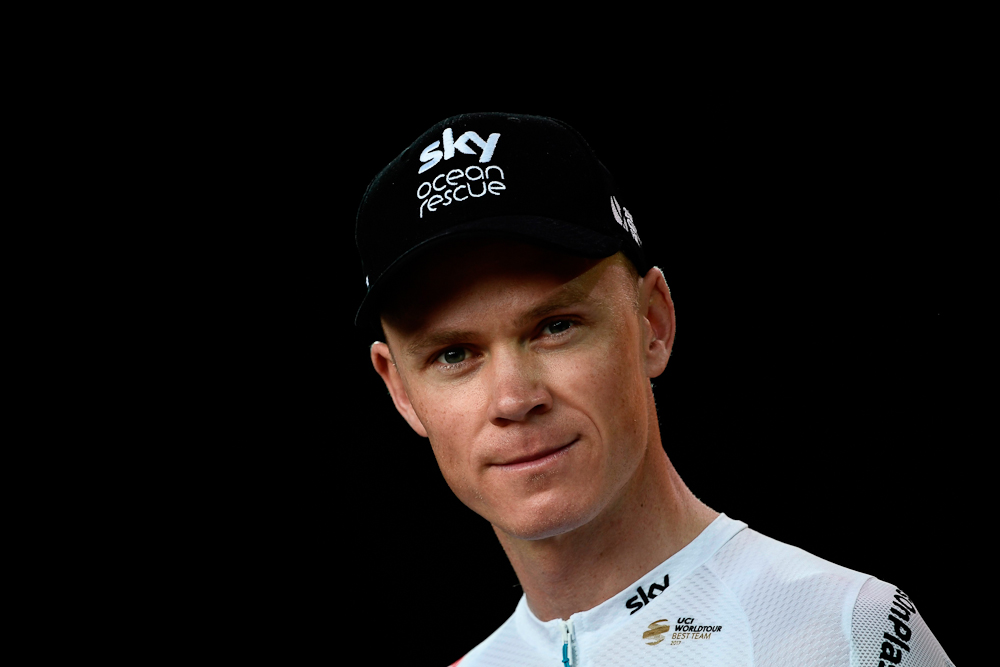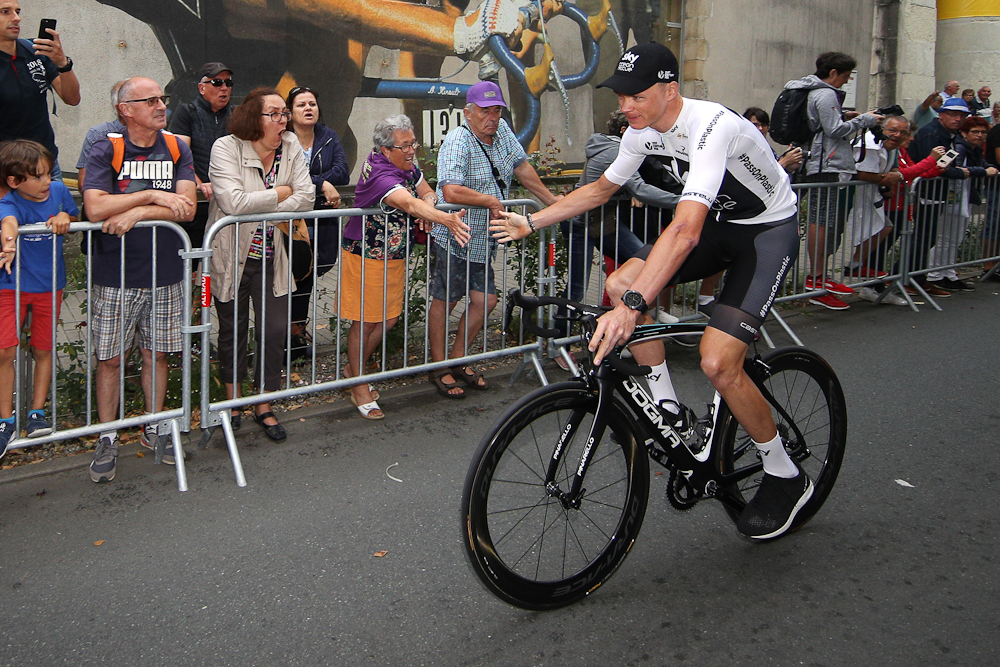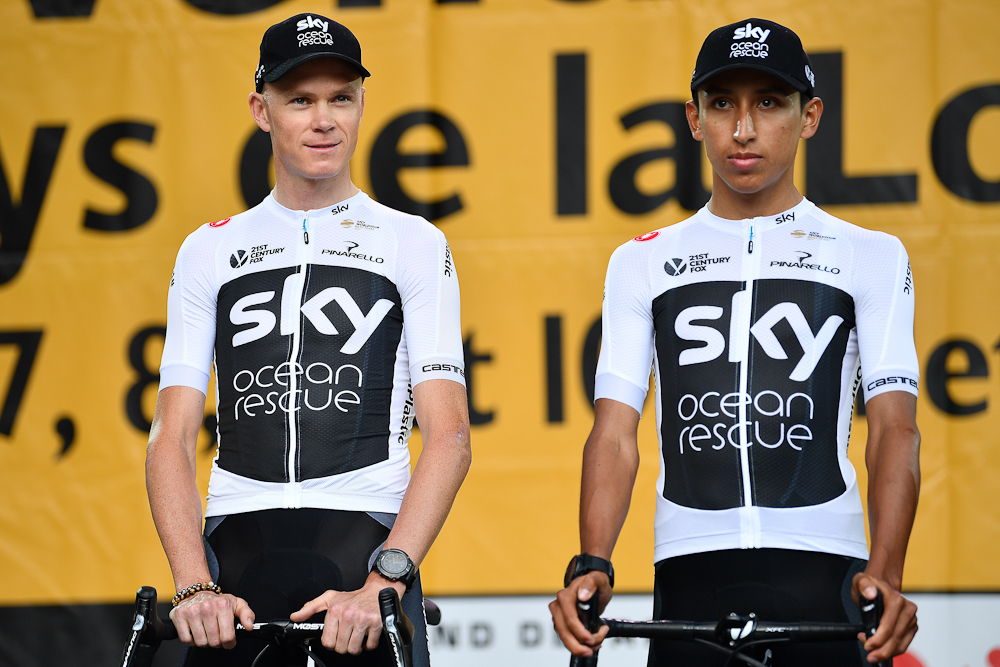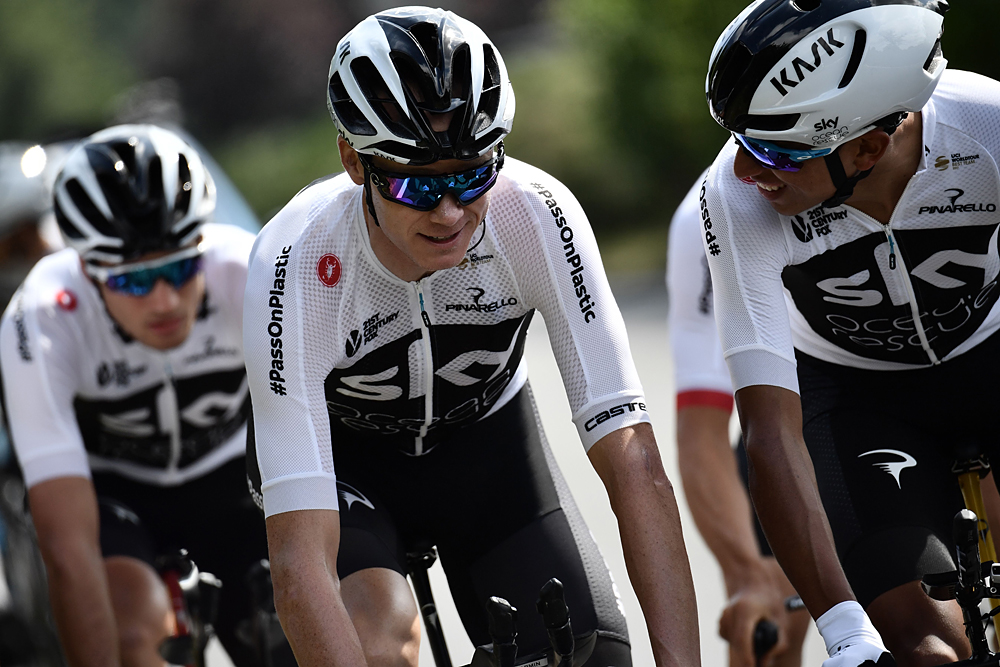Chris Froome: Salbutamol tests need to be looked at to prevent false-positives
Defending Tour de France champion pens open letter





Chris Froome has said that the current standards for salbutamol need to be looked into to prevent any false positives in the future. Froome made the statement in an open letter published in the Le Monde newspaper, and later published in English on the Team Sky website, on the eve of the Tour de France.
Following the closure of the investigation into Froome, Professor Ken Fitch, who developed the test for salbutamol, said that the standards for salbutamol positives were flawed. In his letter, Froome erroneously called for the publication of the studies that showed this.
"There are issues that do need to be looked at urgently - and I am sure they will be - as nobody wants other clean athletes to be faced with a similar situation. I would welcome the publication by WADA of the scientific studies they relied on both to create the current testing regime and to exonerate me," Froome wrote.
"I am sure these will help everyone understand the complexities of the case and the risk of false positives for all athletes who suffer from asthma and use salbutamol to manage their symptoms."
Studies demonstrating how dehydration can affect salbutamol urine concentrations are publicly available, and already had the attention of WADA, who also acknowledged that there are still ongoing studies on the excretion of salbutamol. The agency published a technical document two months after Froome was notified of his result that instituted new standards for evaluation of salbutamol levels that take dehydration into account.
Earlier this week, the UCI closed a nine-month investigation after receiving WADA's recommendation that Froome's values were not inconsistent with allowed doses of the drug. Those standards went into effect on March 1, 2018 but were retroactively applied to Froome's case, leading WADA to recommend no anti-doping rule violation.
One of Froome's urine samples from the 2017 Vuelta Espana recorded a level of salbutamol of 2,000ng/ml – twice the normally allowable limit of 1,000ng/ml, or two-thirds greater than the 'decision limit' of 1200ng/ml. The retroactive application of the new standards to Froome's pending case put his sample 20 per cent over the limit of 1680ng/ml for his level of dehydration. Variability in Froome's samples during the Vuelta added further doubt, leading WADA to the rare conclusion that Froome could have used the allowed doses and still exceeded its standard threshold.
Get The Leadout Newsletter
The latest race content, interviews, features, reviews and expert buying guides, direct to your inbox!
In his letter, Froome maintains that he never took more than the allowable dosage and claims that there is no performance enhancing benefit from using an asthma inhaler.
"Towards the end of the Vuelta, I experienced acute worsening of my asthma and increased the number of puffs under medical guidance. I know exactly what the rules are and how many puffs I am allowed to take. I also know I am going to be tested at the end of every stage when I am in the leader's jersey – indeed, I was tested 23 times during the Vuelta. And it is also worth pointing out that there is no performance benefit from using an asthma inhaler. It is purely a medical treatment."
Studies have supported his assertions regarding inhaled forms of the drug, but oral and injected salbutamol do have performance enhancing benefits and are banned in competition. Distinguishing between the delivery methods in lab testing is confounded by the fact that some quantities of salbutamol from an oral inhaler are swallowed during use.
Froome was allowed to continue racing while the investigation was ongoing because salbutamol is a specified substance. The proceedings in these cases are usually conducted in private without any public communication. Previously, Diego Ulissi's case became public after his Lampre team chose to suspend him under the guidelines of the MPCC. However, Froome's case only became public knowledge when it was leaked to the press last winter.
The choice of newspaper for his open letter is very particular, given that Le Monde was one of the two papers, alongside the Guardian, that broke the news of the case back in December.
"Of course when that happened it was inevitable that some people would rush to judgement," wrote Froome. "It is always difficult for someone who knows they have done nothing wrong to have their integrity questioned. That said I am a realist. I know the history of the sport, good and bad - and I would be the last to complain about scrutiny."
The defending champion, who was booed during the team presentation in La Roche-sur-Yon on Thursday evening, ended his letter with a declaration to the French fans.
"I meant it when I stood on the podium on the Champs Elysees and said I would never dishonour the yellow jersey and my results would stand the test of time. I won't - and they will," Froome wrote. "I love this sport. I am passionate about the Tour. To win any race based on a lie would, for me, be a personal defeat. I could never let that happen.
"Like everyone I am counting down the hours until the Tour starts. The Grand Depart is one of my favourite days of the year. It's the moment when the whole of France starts to create the unique magic that is the Tour. And I can't wait to compete again on cycling's most beautiful stage in front of its most passionate fans."